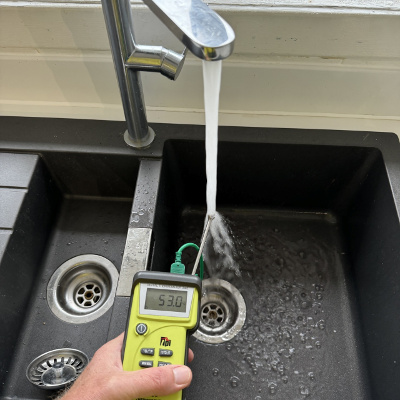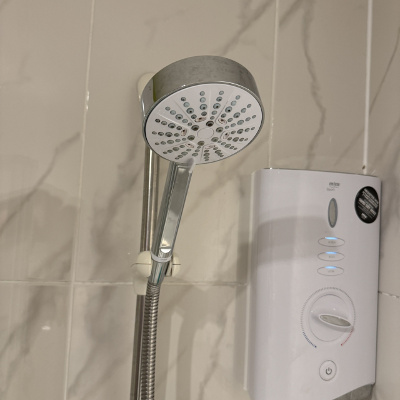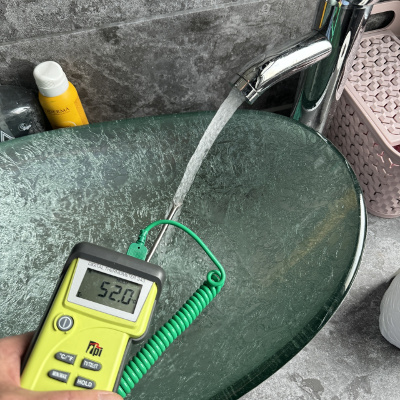What is Legionella?
Legionnaires’ disease is a potentially fatal form of pneumonia caused by the inhalation of small droplets of contaminated water containing Legionella. All man-made hot and cold water systems are likely to provide an environment where Legionella can grow. Where conditions are favourable (ie suitable growth temperature range; water droplets (aerosols) produced and dispersed; water stored and/or recirculated; some ‘food’ for the organism to grow such as rust, sludge, scale, biofilm etc) then the bacteria may multiply thus increasing the risk of exposure. It is a simple fact that the organism will colonise both large and small systems so both require risks to be managed effectively. Government advice on Legionaries Disease Contact us for a quote
The practical and proportionate application of health and safety law to landlords of domestic rental properties is that whilst there is a duty to assess the risk from exposure to Legionella to ensure the safety of their tenants, this does not require an in-depth, detailed assessment. The risks from hot and cold water systems in most residential settings are generally considered to be low owing to regular water usage and turnover. A typical ‘low risk’ example may be found in a small building (eg housing unit) with small domestic-type water systems, where daily water usage is inevitable and sufficient to turn over the entire system; where cold water is directly from a wholesome mains supply (no stored water tanks); where hot water is fed from instantaneous heaters or low volume water heaters (supplying outlets at 50 °C); and where the only outlets are toilets and wash hand basins.
A simple assessment may show that there are no real risks and are being properly managed and no further action is needed. It is important to review the assessment in case anything changes in the system.
Implementing simple, proportionate and appropriate control measures will ensure the risk remains low. For most domestic hot and cold water systems, temperature is the most reliable way of ensuring the risk of exposure to Legionella bacteria is minimised ie keep the hot water hot, cold water cold and keep it moving. Other simple control measures to help control the risk of exposure to Legionella include:
flushing out the system prior to letting the property
avoiding debris getting into the system (eg ensure the cold water tanks, where fitted, have a tight fitting lid)
setting control parameters (eg setting the temperature of the hot water cylinder (calorifier) to ensure water is stored at 60°C)
make sure any redundant pipework identified is removed.
The risk is further lowered where instantaneous water heaters (for example combi boilers and electric showers) are installed because there is no water storage.
It is important that water is not allowed to stagnate within the water system and so there should be careful management of properties left vacant for extended periods (eg student accommodation left empty over the summer vacation). As a general principle, outlets on hot and cold water systems should be used at least once a week to maintain a degree of water flow and minimise the chances of stagnation. To manage the risks during non-occupancy, consideration should be given to implementing a suitable flushing regime or other measures such as draining the system if it is to remain vacant for long periods.
Who can assess the risk?
Energy Certificates Scotland offer a simple and straightforward approach for landlords so compliance does not need to be burdensome or costly. At Energy Certificates Scotland all out engineers are accredited to carry out legionella risk assessments PAT Testing, EICR reports. EPC’s Gas safety inspections CP12.
How could legionella affect a tenant?
Legionella is hazardous bacteria that can be found in water. In a residential property, Legionella can grow in water stored at temperatures between 20°C and 45°C degrees. If ingested or inhaled, water containing Legionella will lead to Legionnaires’ disease or legionellosis – an infectious and sometimes fatal form of pneumonia.
Hot and cold water systems are an ideal environment for Legionella to grow in. The risk of contamination is particularly higher in:
Water tanks and systems in which water is stagnant and/or recirculated
Temperatures between 20°C and 45°C degrees
Water droplets or aerosols produced by whirlpool baths or showerheads
Mist and spray dispersed into the air
Rust, scale, sludge and biofilm that “feed” the bacteria
Properties that are left empty for long period of time
The risk of Legionella is particularly low in properties with combi boilers, as the system keeps the water moving – giving the bacteria little chance to develop.
However, homes with open water tanks (usually older buildings) have a substantially higher risk of Legionella, as the water is more likely to be left to stagnate.
What are the risks of Legionella and Legionnaires’ disease?
Legionnaires’ disease can be very serious. If infected, you or your tenant will be subject to:
- High
- fevers
- Coughing
- Headaches
- Shortness
- of breath
- Nausea
The symptoms of Legionnaires’ disease usually last between 2 to 10 days and can be treated with antibiotics if identified soon enough. Some people are particularly vulnerable to the risks of Legionella, including older people, those with lung issues and poor immune function.
What does a landlord Legionella risk assessment involve?
Our assessors at Energy Certificates Scotland will cover all water systems in your rental property. The assessment itself will involve:
- Identifying potential hazards and the level of risk posed
- Identifying who is at risk
- Testing the water system for Legionella*
- Putting adequate control measures in place to minimise the risk
- Recording the findings of the assessment
- Reviewing the assessment as needed
*Testing or sampling water for Legionella bacteria is not a legal requirement for landlords, but is typically part of a Legionella risk assessment carried out by a professional.
A Legionella risk assessment should be carried out by someone with a competent understanding of the hazard of Legionella.



